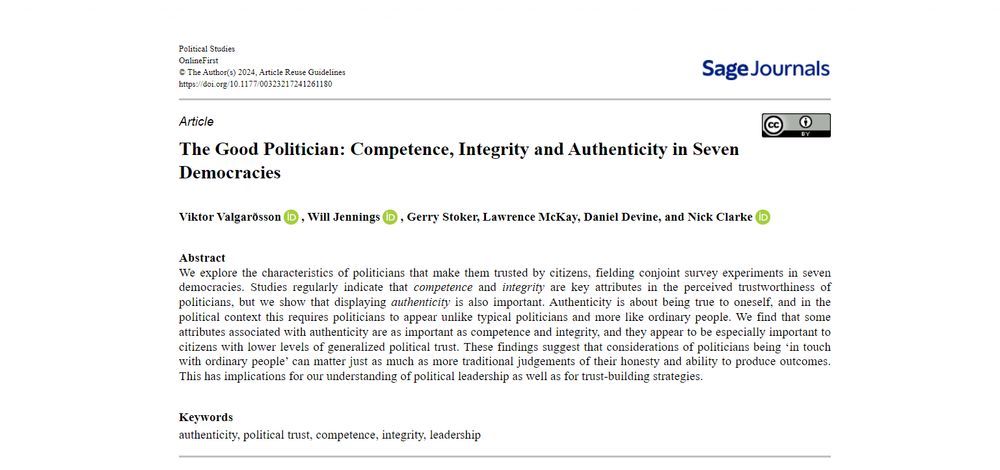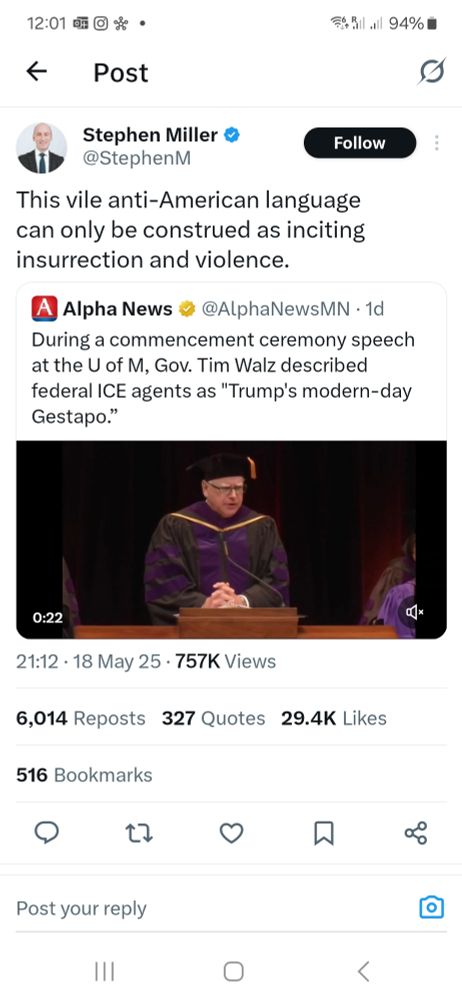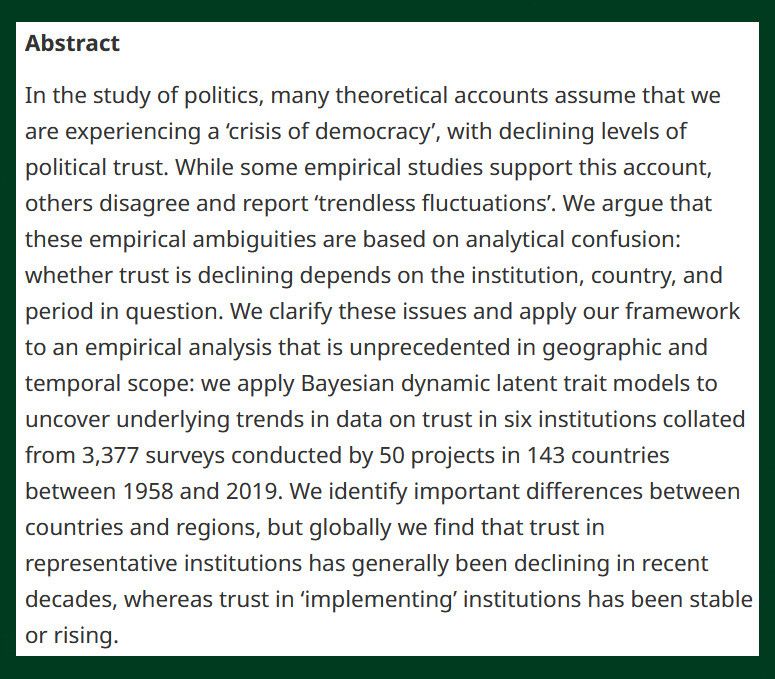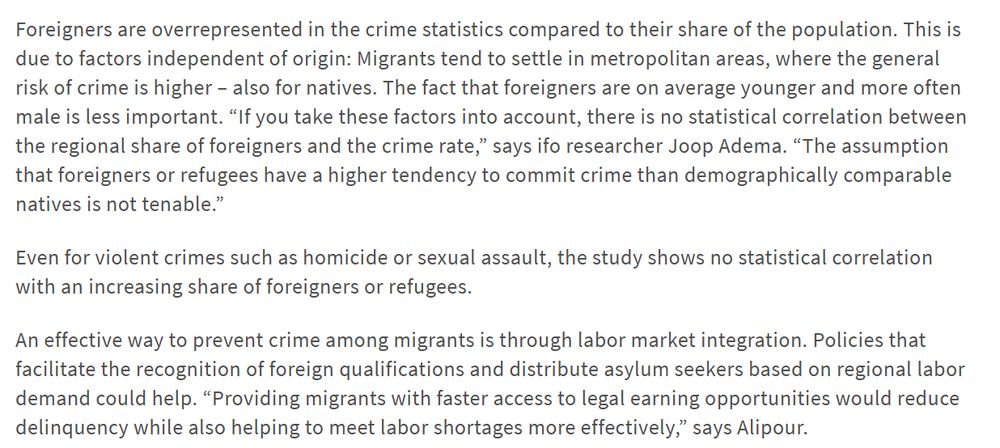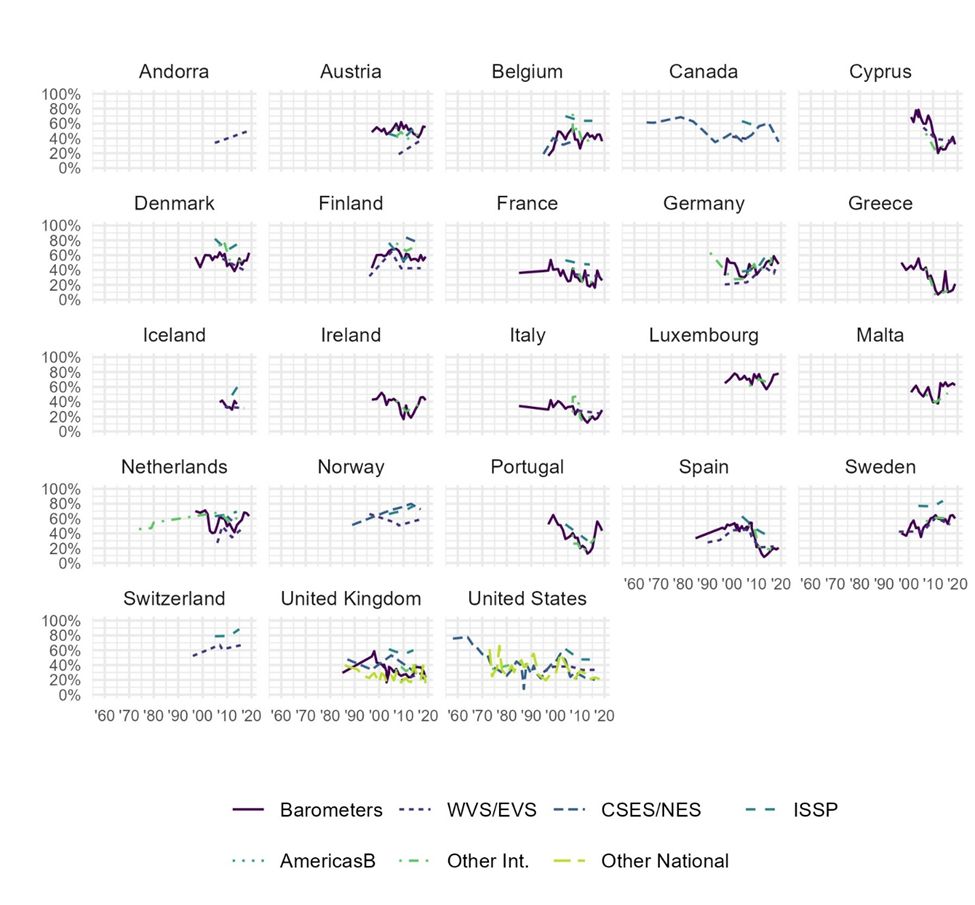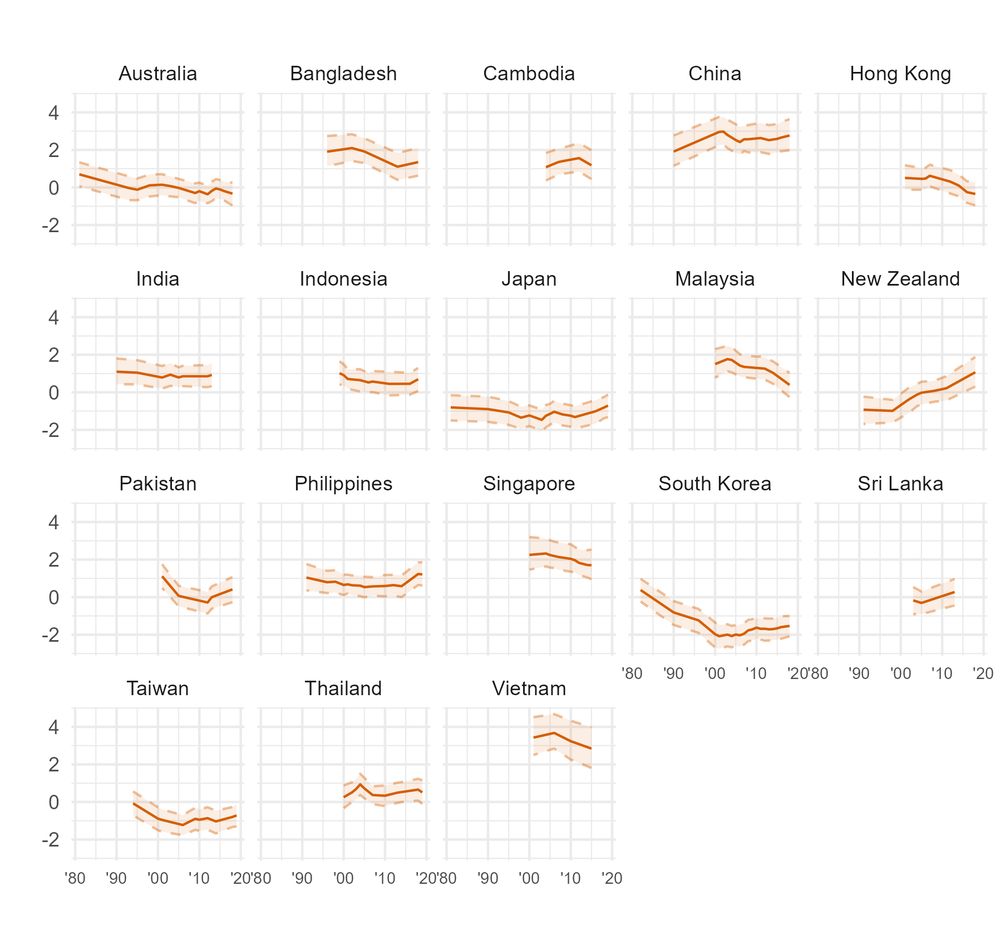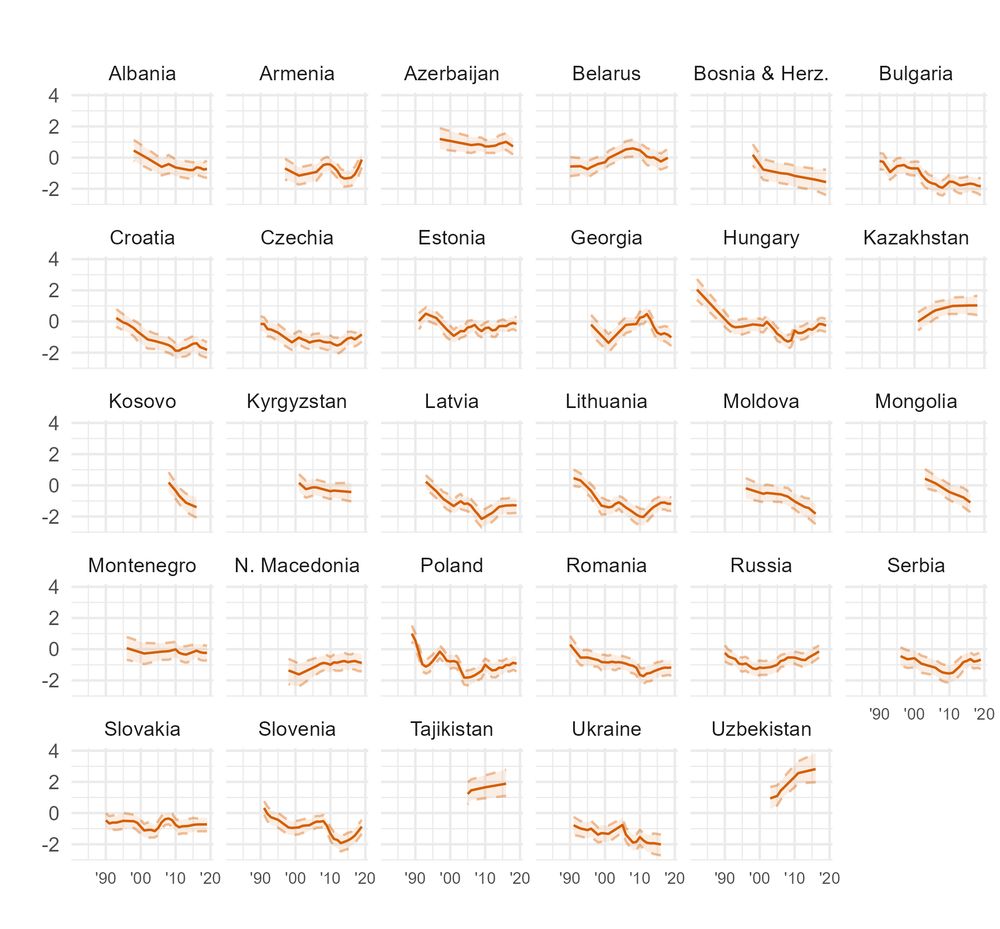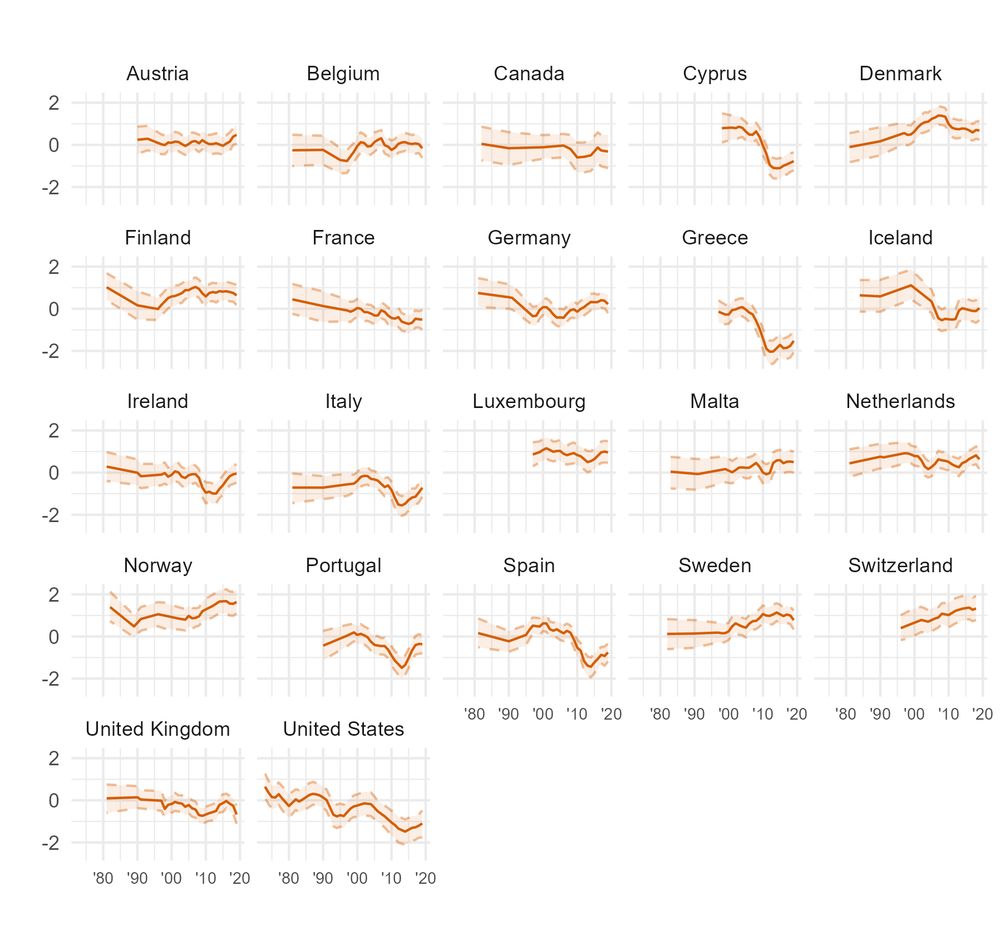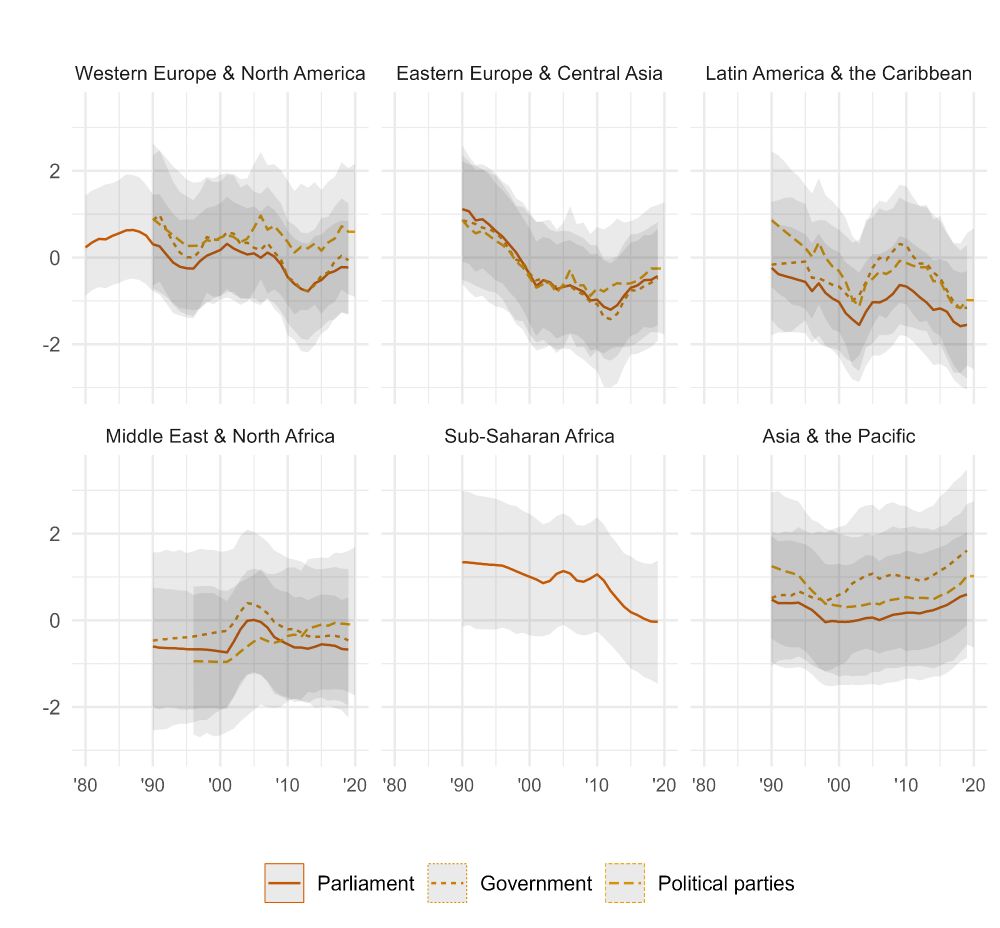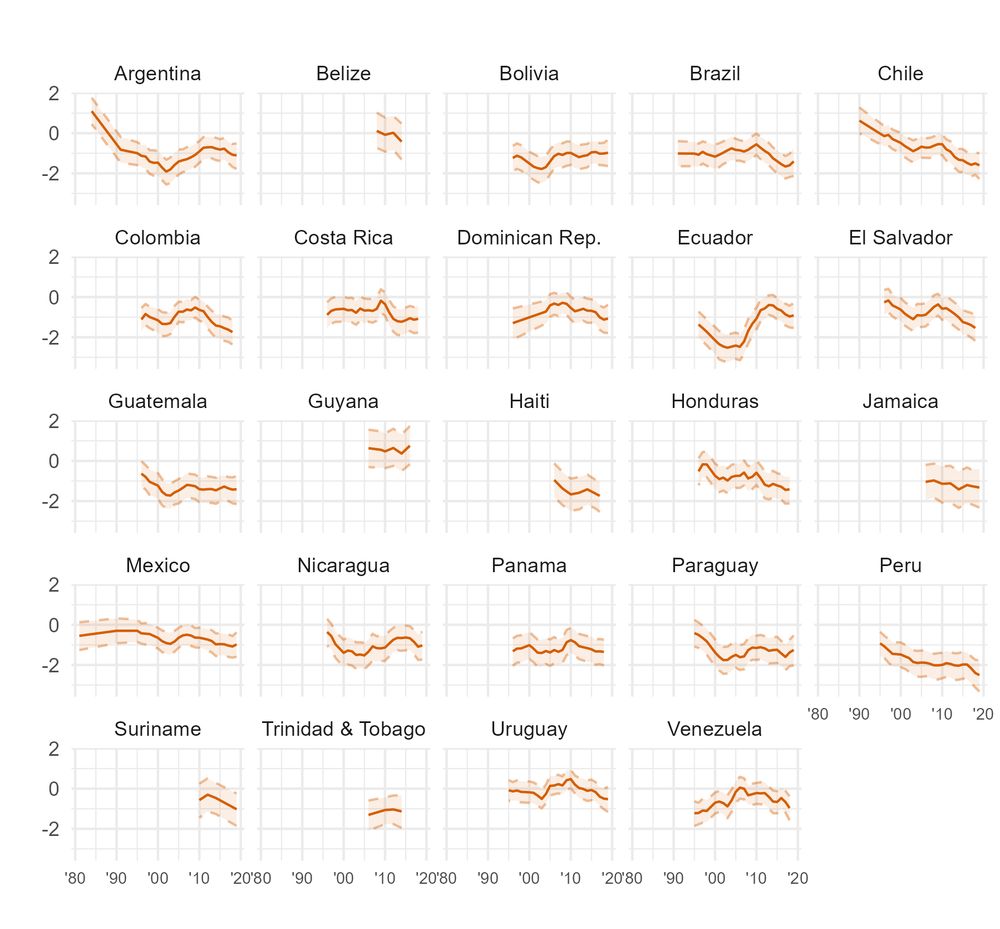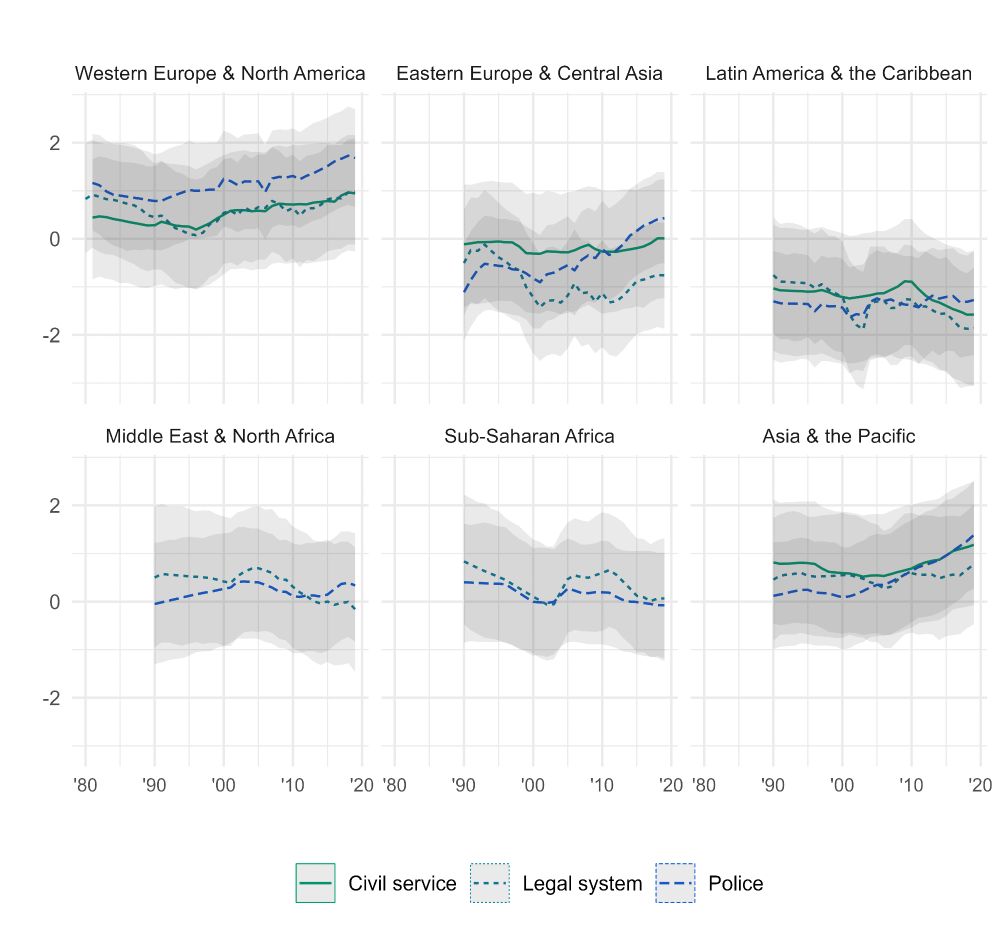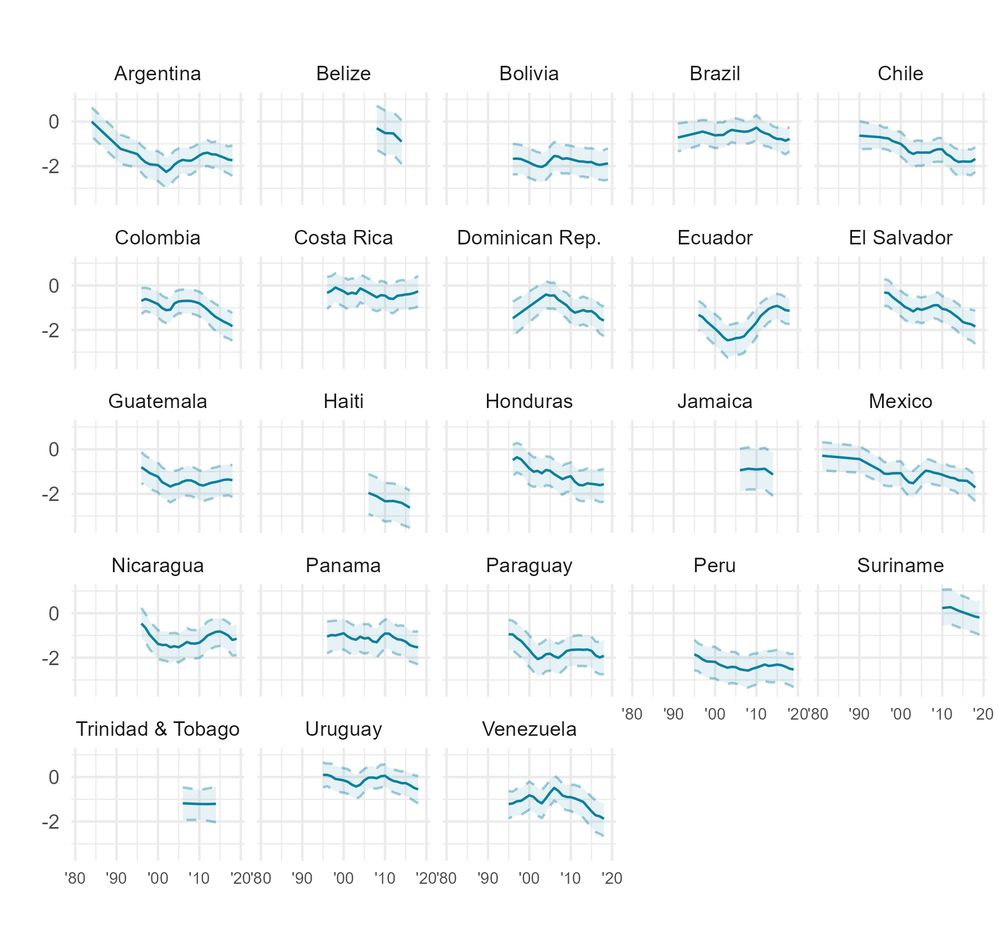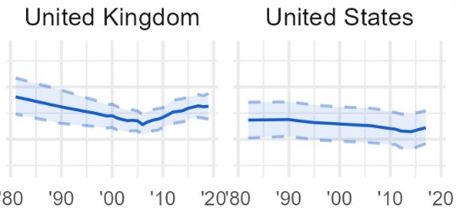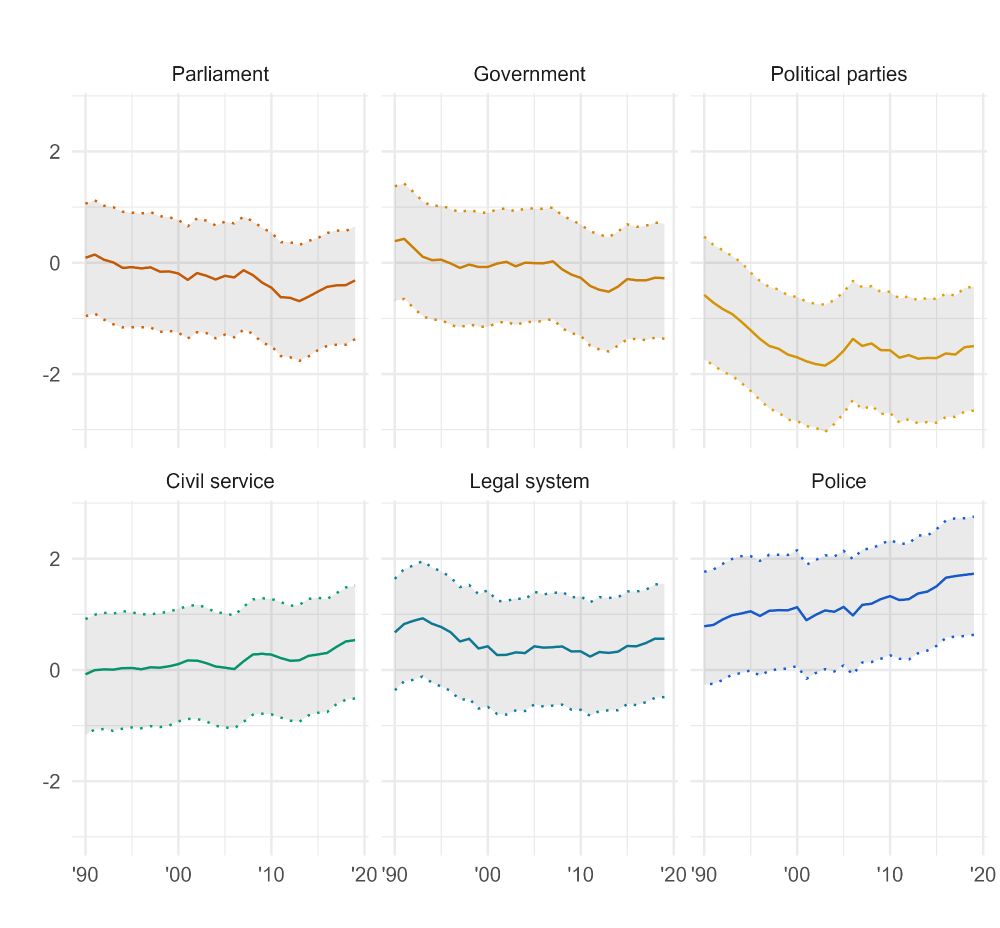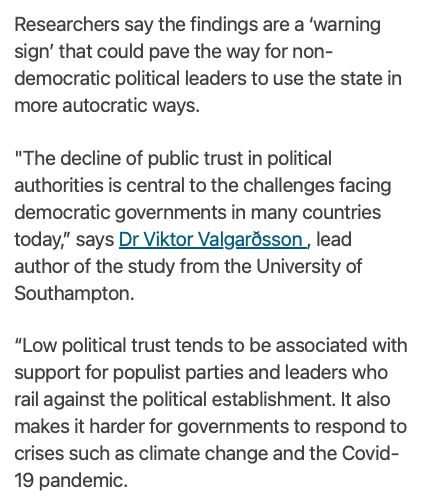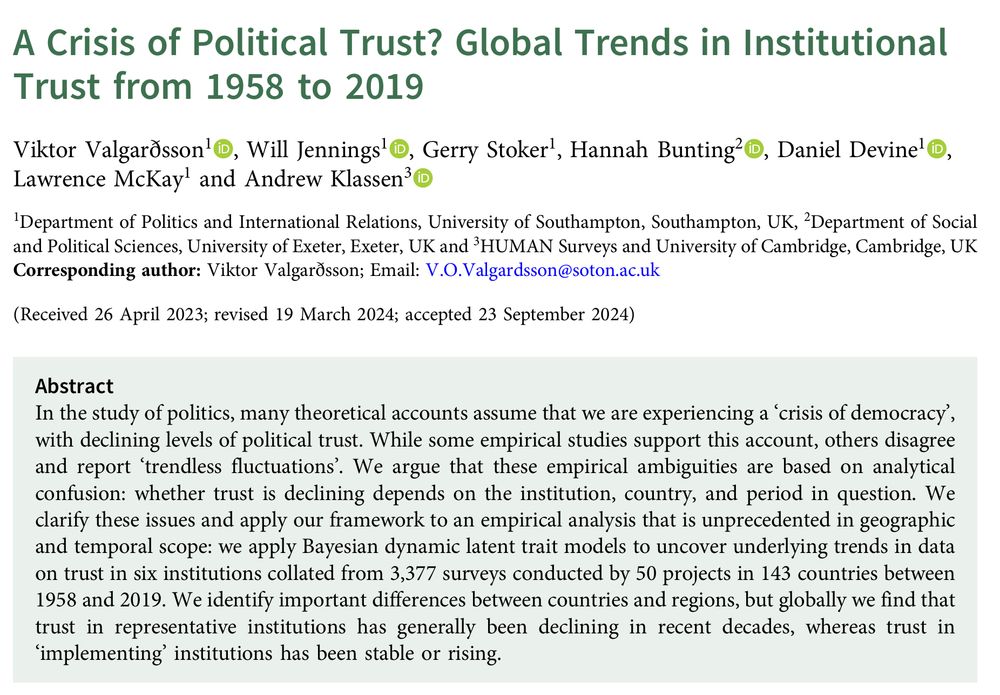Viktor Valgarðsson
@viktorv.bsky.social
380 followers
220 following
60 posts
Political scientist at the University of Southampton. Studying political trust and democracy and other weird things. Einnig til í glens.
Posts
Media
Videos
Starter Packs
Viktor Valgarðsson
@viktorv.bsky.social
· Jun 25
Reposted by Viktor Valgarðsson
Reposted by Viktor Valgarðsson
Reposted by Viktor Valgarðsson
Reposted by Viktor Valgarðsson
Tom van der Meer
@tomwgvdmeer.bsky.social
· Apr 10
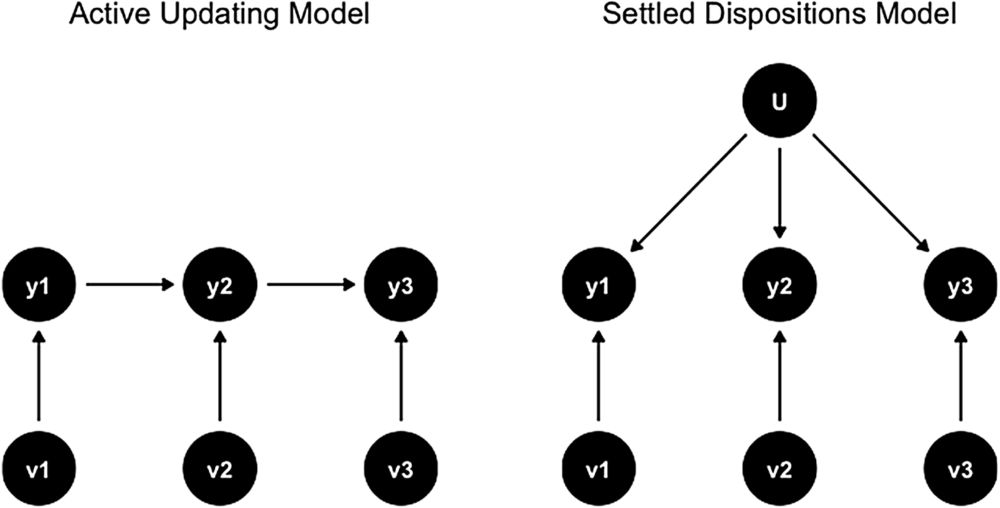
Socialized to (Dis)trust? A Panel Study into the Origins of Dispositional Institutional Trust - Social Indicators Research
A longstanding argument in the field of institutional trust reads that trust is the outcome of a process of socialization. This approach suggests that institutional trust may be understood as a set di...
link.springer.com
Viktor Valgarðsson
@viktorv.bsky.social
· Feb 19
Reposted by Viktor Valgarðsson
Viktor Valgarðsson
@viktorv.bsky.social
· Feb 16
Reposted by Viktor Valgarðsson

